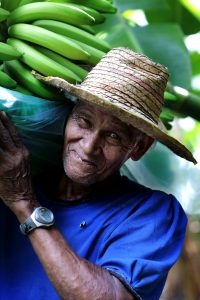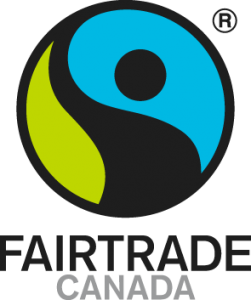Following shoppers’ lead: The future of retail in Canada

Grocery plays a major role in Canadian retail with major grocers holding the top five spots in the retail sector, according to a study from the Centre for the Study of Commercial Activity at Ryerson University.
While grocery is in a good place now, there are signs of a shift on the horizon. With a consumer market seeking socially and environmentally responsible options, the face of retail in Canada is changing. This is a critical time for grocers, and it represents an opportunity to make the industry ready for the future.
According to Nielsen’s 2018 report Unpacking the Sustainability Landscape, 73% of consumers say they would change their buying choices to reduce their environmental impact. Another study titled Sustainability Sells: Linking Sustainability Claims to Sales shows that sales of chocolate with fair trade claims are outpacing the category by a whopping 12%. In Canada, interest in Fairtrade has resulted in strong sales. The estimated retail value of Fairtrade products topped $456M in 2017, an increase of more than 16%, whereas the conventional market grew by just 2.7%.
This indicates that consumers are striving to shop in line with their values, and they expect grocers to accommodate their needs. This means offering a variety of products with attributes like organic, Fairtrade or locally-produced. Since products like coffee, cocoa, and bananas cannot be grown in Canada, products that are Fairtrade certified provides a level of assurance that social and environmental standards are being followed. According to a 2019 Globescan study, more than half of Canadian consumers see the Fairtrade Mark as an easy identifier of responsibly produced products, and half of respondents associate Fairtrade with their personal values.
Incorporating more responsible and transparent sourcing doesn’t have to be hard. Canadian grocers can look to others for examples of how to increase trust and transparency. Countries like the UK have seen a dramatic shift over the last 10 years. Currently, one in every three bananas is Fairtrade, and certified coffee and chocolate are commonplace throughout retail outlets.

Here in Canada, Fairtrade products are taking up more shelf space with local retail champions like Choices Markets, The Big Carrot, Federated Coop, and others. Fairtrade banana sales showed +33% volume growth in 2018, and major banners such as Sobeys Quebec, Farm Boy, and Longos are leading the way. Sobeys recently expanded their Fairtrade flower offering, and Loblaws, Metro and Costco now offer Fairtrade organic house branded coffee.
Retail is changing. With the tangible effects of climate change and increased scrutiny of where products originate, this is your opportunity to improve your business and ignite consumer interest. Grocers across Canada have dipped their toes in the sustainability waters, but now more than ever it’s time to dive in.
John Marron is director of commercial relations at Fairtrade Canada. He works with major grocery retailers, distributors, and foodservice providers to grow the market for Fairtrade products in Canada.
